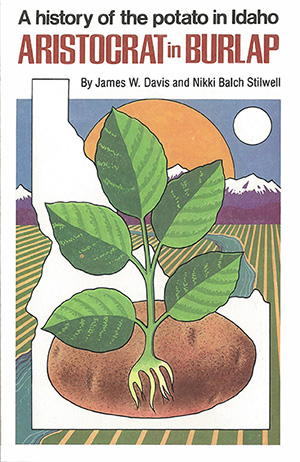Gradually, the Commission office procedure was becoming more efficient and up-to-date when the new billing system went into effect in 1961 and a method was devised for keeping records on processor-grade potatoes being sold by first handlers to processors. The problem of collecting delinquent advertising tax was constant.
A summary of 26 states and the District of Columbia showed that publication space amounting to $62,000 in value was obtained in publicity and tie-ins in the 1962-63 financial year.
Work on a state-of-the-art research laboratory at the University's Aberdeen Experiment Station was started later in 1963. The IP&OC contributed $118,000 of the $315,117 total cost of the project and encouraged the University to name the facility the Joe Marshall Potato Research Center. The center provides approximately 12,000 square feet of laboratory and controlled storage space. The research center is directed by the Idaho Agricultural Experiment Station with all work conducted in cooperation with Idaho's potato industry and the Agricultural Research Service of USDA.
Early in 1964, one of the Commissioners attending the United Fresh Fruit and Vegetable Association convention reported back that the Idaho® potato booth "stole the show."
By the middle of the year, C.G. Rice had worked 25 years as a fieldman for the Commission. He was credited with being with the Commission continually longer than any other person at that time.
The beginning of the direct involvement of the IP&OC with transportation problems began the middle of 1964, when it was suggested that a fund be established to hire a rate expert. The fund was to be financed by the various Idaho commissions, such as wheat, bean, and prune.
Talk of potato calories was heard at Commission meetings toward the end of 1965, and efforts to counteract the "potatoes are fattening" publicity was made.
In February of 1965, Gerald A. Lee submitted his resignation to the Commission, stating that he had accepted a position with the Department of Agriculture in Hawaii. Jay Sherlock, who had been publishing the Idaho Potato and Onion News, was one of the many who applied for the job of executive secretary and was subsequently hired after the search committee had screened the applicants.

